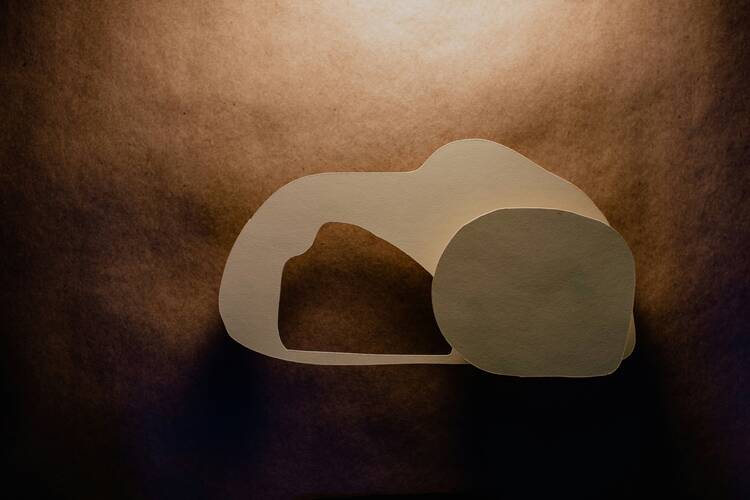A Reflection for Easter Sunday of the Resurrection of the Lord
Find today’s readings here.
The Lectionary bookends the Lenten season with lovely irony.
On Ash Wednesday, just before we smear our foreheads with the sign of our penitence, Jesus in the Gospel reminds us: “When you fast, anoint your heads and wash your face” (Mt 6:17).
And today, on Easter morning, the Gospel ends with: “For they did not yet understand the Scripture that he had to rise from the dead.”
After all of this—40 days of Lent for us, three years of preparation and discipleship for Peter and the beloved disciple, the whole of the Passion, Mary of Magdala seeing the stone removed, running back to the tomb to see the burial cloths—all of this, and “they did not yet understand.”
Here is where the Lectionary leaves us at Easter: not with an appearance of the risen Lord, but standing before the empty tomb, with us not yet understanding. With the open question to which only the whole of our lives of faith in the Body of Christ offers the answer.
If we read just a little bit further—as we will for the next week during the Octave of Easter and over the rest of the Easter season until Pentecost—then Mary will encounter and recognize Jesus after mistaking him for the gardener. The disciples on the road to Emmaus will recognize him in the breaking of the bread. Despite locked doors, he will show up and promise peace; he will show us his wounds so that we know it is really him. He will eat with us and send us out to feed his sheep ourselves.
We will come to understand. But not just yet.
Perhaps, in the Gospel the church offers us for Easter Sunday, we are reminded that before the resurrection is an answer, it is a question. That the experience of faith in Christ risen, for the first disciples, began even before they understood—and it starts that way for us as well.
Or to put it another way: Before the life of faith is something that we can comprehend, it is something that has happened to us and in us. “It was not you who chose me, but I who chose you” (Jn 15:16).
Spend a little time today with Mary staring at the stone rolled away. Stand with Peter and the beloved disciple looking into the empty tomb. Wonder what is going on. Pay attention to not understanding yet.
And in the space that opens up before that “they did not yet understand,” let the grace and power of the resurrection be at work in you, so that when you, like the disciples, recognize Jesus raised from the dead, your faith and your joy may be full, even overflowing.








